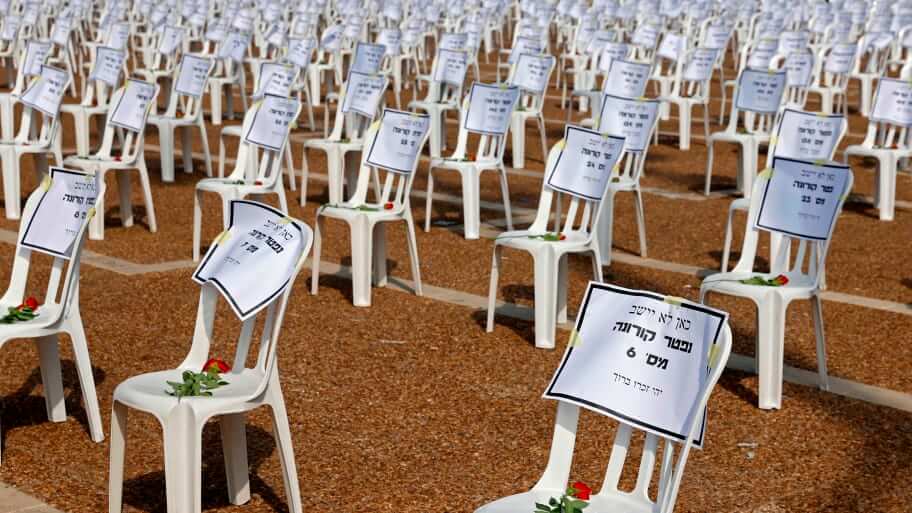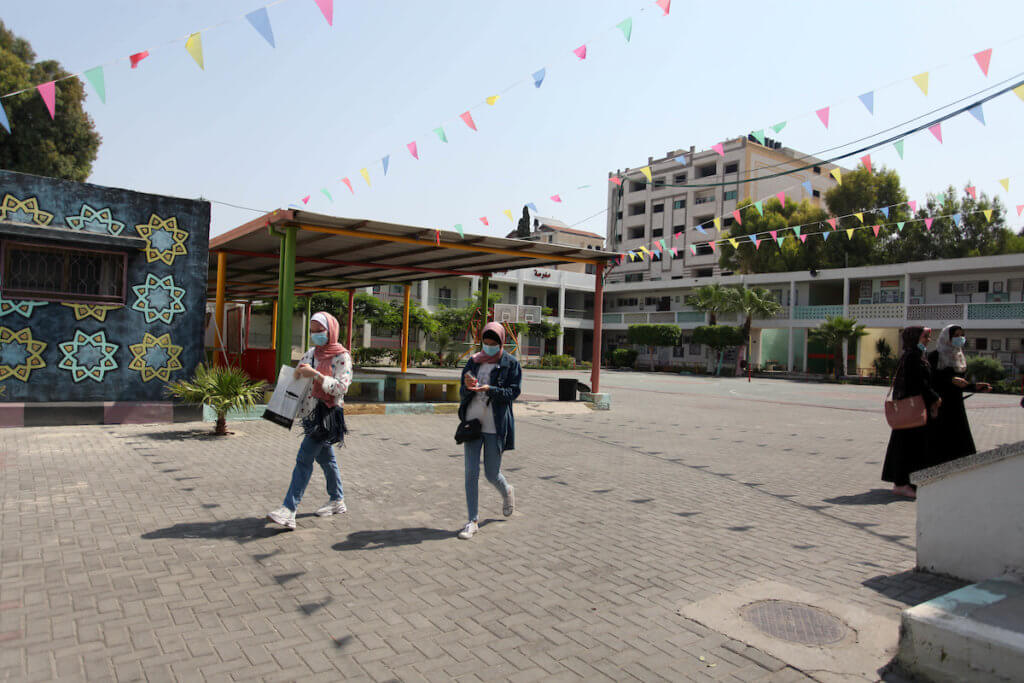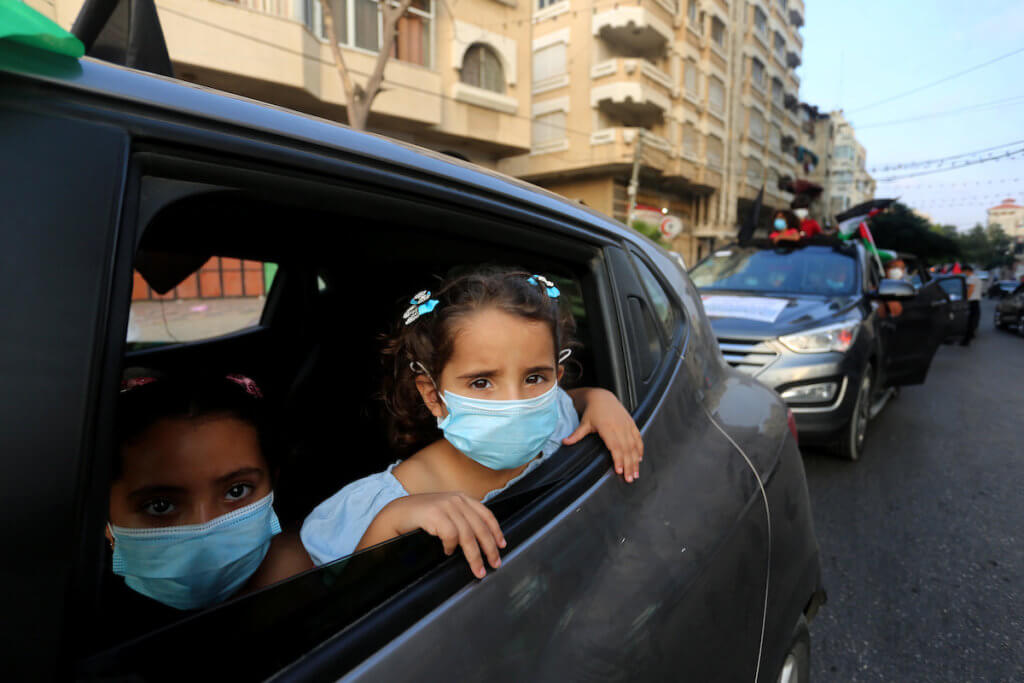Palestinians in Gaza City on September 17, 2020. (Photo: Ashraf Amra/APA Images)
Latest:
- 179,071 tested positive in Israel for COVID-19; 1,196 deaths
- Around 2% of the general population in Israel tested positive for COVID-19
- 44,037 Palestinians test positive for COVID-19; 32,178 in the West Bank; 2,223 in the Gaza Strip; 9,636 in East Jerusalem
- 286 Palestinian deaths from COVID-19

Chairs installed at Tel Aviv’s Rabin Square to symbolise the 1,000 coronavirus deaths in Israel, on September 7, 2020. Israel passed the milestone of 1,000 novel coronavirus deaths last weekend after the toll tripled over the summer. (Photo: JACK GUEZ/AFP/ Getty Images)
Israel returns to lockdown today after a spike in daily new coronavirus cases went from a handful to 5,500 this week, with officials implementing a long array of rules that will last at least three weeks, some more stringent that the first lockdown.
In a joint statement from Prime Minister Benjamin Netanyahu’s office and the ministry of health, Israel said it closed schools and businesses, save for essential services, and limited movement outside of the home to around a quarter of a mile.
The closures go into effect a day before the start of the Jewish New Year, or the Rosh Hashanah holiday, leaving many Israelis confused about regulations limiting prayer. Gatherings of up to ten are allowed indoors and up to 20 outdoors, but individual cities can set further restrictions.
Early this week Netanyahu was in Washington DC signing an agreement to normalize relations with the UAE and Bahrain. When he returned to Israel on Wednesday, he caught flak for meeting with supporters who were not wearing masks instead of immediately going home and going into quarantine for 14 days, per Israeli regulations.
Haaretz’s Noa Landau reported:
According to Health Ministry guidelines, every member of the Israeli delegation to Washington was supposed to go directly to their homes after disembarking and remain in quarantine until they could undergo contact tracing and a coronavirus test.”
In-between a full scale lockdown and business as usual

We reported in this newsletter last week that the West Bank’s start of the school year was short-lived, with dozens of schools getting shut down after just a few days. This week children are still being kept home and the government is mulling a wider level lockdown. As of now most businesses are still open. While Palestinians are encouraged to wear masks, just this week police were instructed to start enforcing masks or risk penalties.
The highest single day of new cases came Tuesday when 1,118 tested positive in the West Bank, East Jerusalem, and the Gaza Strip. The World Health Organization said in its latest situation report, “the total number of COVID-19 cases has risen by 30% or 13,407, an average of 788 cases per day” in the West Bank.
In Gaza the overall numbers are lower, but the rate of infection is higher. Cases rose by “83% or 1,820, an average of 109 cases per day,” reported the WHO. To slow the spread, this week Gaza has continued banning movement between governments and ordering overnight curfews from 10 p.m. to 7 a.m.
In the Jordan Valley, Palestinians caught between land confiscations and the pandemic

This week our correspondent Yumna Patel visited a remote corner of the Jordan Valley and spoke with Palestinians who live in unrecognized villages, facing the pandemic without access to running water, electricity or municipal sewage.
“The coronavirus pandemic is everywhere in the world but in the Palestinian areas, specifically in the Jordan Valley we have two pandemics: the pandemic of the [Israeli] occupation and then the coronavirus,” Motaz Bisharat, a Palestinian activist based in the northern Jordan Valley told Patel.”
Check out the full series on COVID-19 in the West Bank here.


